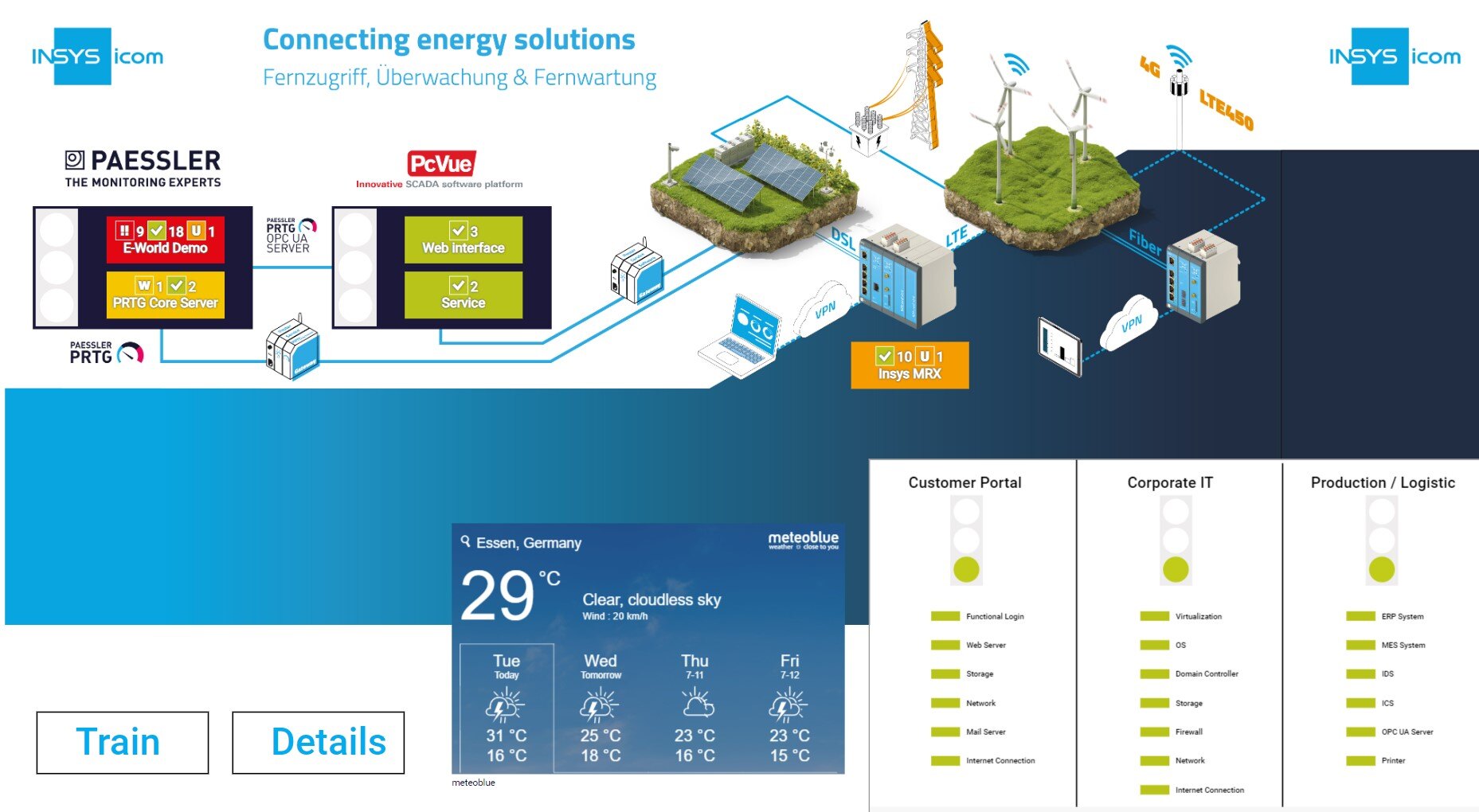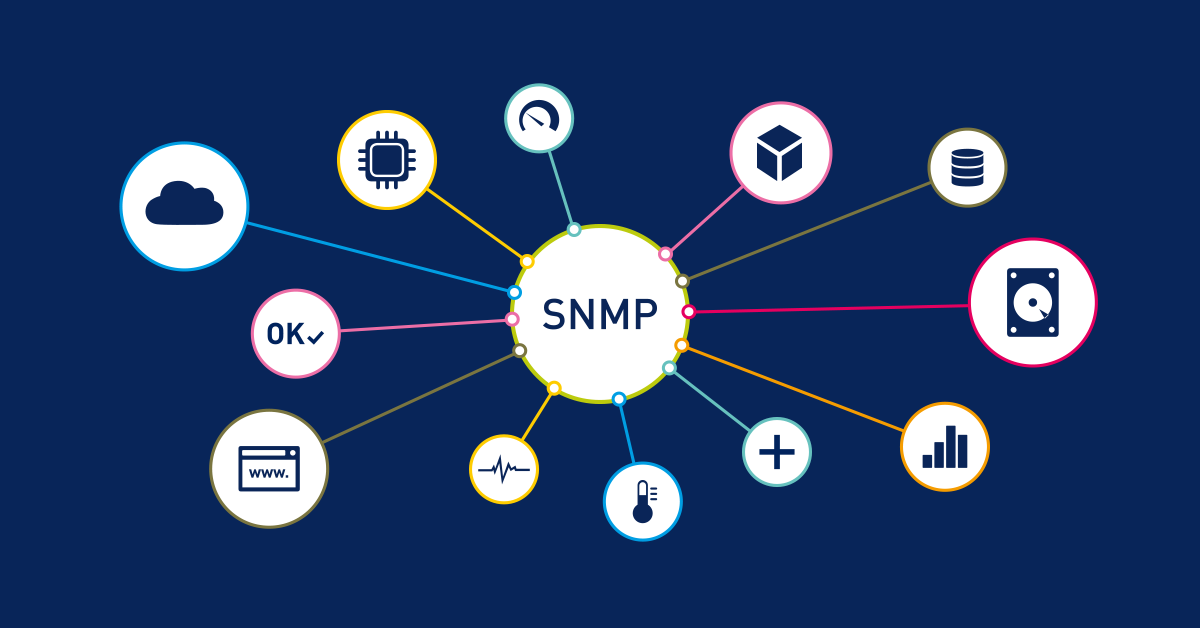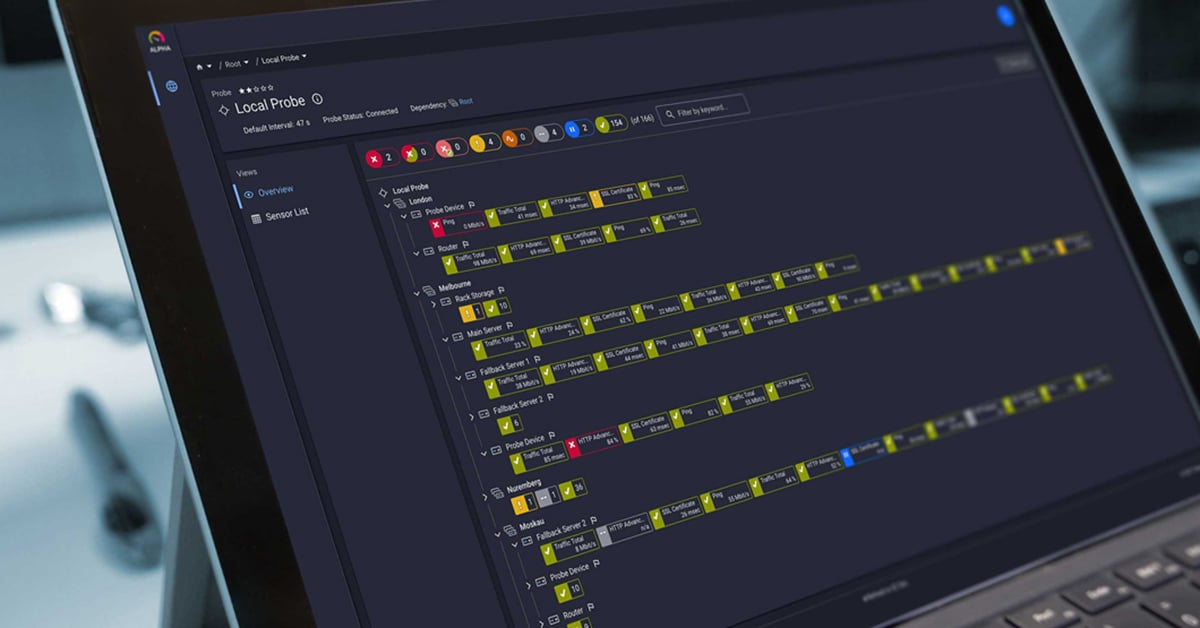Managing power plants and energy grids is a massive undertaking: they are a combination of Operational Technology (OT) networks, IT networks, and distributed facilities and infrastructure. Because of this, an approach that relies on remote access and monitoring is key. Obviously, we’re most interested in the monitoring aspect of this approach, and specifically: how it can be integrated into an overall management and control solution to provide an holistic overview for OT operators. To give you an idea of how monitoring fits into the picture, let’s take a look at a concrete example.
Remote access and monitoring
 We recently presented a showcase at an exhibition where the focus was sustainable energy for the future. We demonstrated with some of our partners how it is possible to empower OT operators to manage energy infrastructure by providing them with the data they need, where they need it. To do this, we created an energy grid with a model train running on it.
We recently presented a showcase at an exhibition where the focus was sustainable energy for the future. We demonstrated with some of our partners how it is possible to empower OT operators to manage energy infrastructure by providing them with the data they need, where they need it. To do this, we created an energy grid with a model train running on it.
Here’s what formed the basis of our example for the remote control and monitoring of the grid:
- SCADA system
As in many OT implementations, a SCADA system handles the control and management of the OT network and components. PCVue was the SCADA system used in our demonstration - Remote access
The secure connection to the OT network is provided by an INSYS MRX router, utilizing the INSYS icom Connectivity Suite VPN service. Connected to the router were several other devices. - Monitoring
We used our Paessler PRTG Hosted Monitor, which is monitoring software hosted in the cloud, to monitor various aspects of the grid and its supporting elements. Additionally, Paessler PRTG OPC UA Server was used to get monitoring data into the PCVue SCADA system.
Using this monitoring data, we created a dashboard in PRTG to summarize the most important information:

Monitoring as a part of the solution
In our demonstration, PRTG monitors several supporting components, as well as metrics vital to understanding the status of the entire energy grid.
INSYS MRX Router
 The key to managing the power grid remotely is remote access, and this is provided by an MRX router in our scenario. Since the MRX router is Linux-based, we were able to deploy our PRTG multi-platform probe as an LXC container to retrieve monitoring data. Using predominantly SNMP and Modbus functionality, we were able to monitor not only the MRX router itself, but also devices connected to it: a Dehn lightning detector, a Wago PLC, and a CCTV camera.
The key to managing the power grid remotely is remote access, and this is provided by an MRX router in our scenario. Since the MRX router is Linux-based, we were able to deploy our PRTG multi-platform probe as an LXC container to retrieve monitoring data. Using predominantly SNMP and Modbus functionality, we were able to monitor not only the MRX router itself, but also devices connected to it: a Dehn lightning detector, a Wago PLC, and a CCTV camera.
Here’s a look at the devices and metrics we monitored:

- INSYS MRX router
Router metrics that we monitored include the status of the router, memory usage, VPN traffic and more.
- Wago PLC 750

A Wago PLC was connected to the train system and could provide PRTG with access to the number of laps the train had completed, as well as whether the train was positioned at the station or not.
- DEHNdetect lightning detector
We monitored not just the status of the lightning detection device, but can also retrieve the number of lightning strokes detected. - INSYS icom Data Suite
The icom Data Suite gives access to metrics regarding the remote energy facilities, including the photovoltaic system, the wind farm, and more. For another example of how well PRTG works with the icom Data Suite, here's a use case in getting data from the factory floor with INSYS icom and PRTG. - CCTV Camera
We could also monitor the status of a connected CCTV camera.
Displaying monitoring data in the SCADA system
Having these metrics is already incredibly useful for getting insights into the infrastructure. However, the management of distributed OT networks requires an holistic approach – which means consolidating the data. In our example, we were able to make the monitoring data from PRTG available in the PCVue SCADA overview. We did this using Paessler PRTG OPC UA Server, which makes monitoring data accessible to control systems over OPC UA.
Meeting the requirements of critical infrastructure management
The recent global focus on cybersecurity for OT networks, as well as the implementation of more stringent industry standards (such as NIS2 in Europe) mean that the management of critical infrastructure needs a coordinated and holistic approach. Infrastructure monitoring plays a big role in such an overview, and should be included in any strategy for managing OT networks.
 Published by
Published by 






